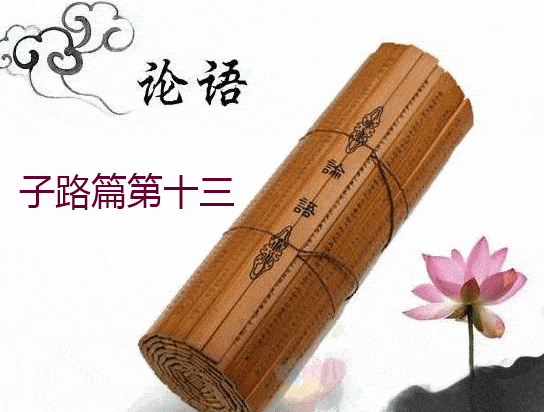Now, when these things obtain, the people from all quarters will come to him, bearing their children on their backs, what need has he of a knowledge of husbandry?
夫如是,則四方之民襁負(fù)其子而至矣,焉用稼?
The Master said, "Though a man may be able to recite the three hundred odes, yet if, when intrusted with a governmental charge, he knows not how to act;
子曰:“誦《詩》三百,授之以政,不達(dá);
or if, when sent to any quarter on a mission, he cannot give his replies unassisted;
使于四方,不能專對;
notwithstanding the extent of his learning, of what practical use is it?"
雖多,亦奚以為?”
The Master said, "When a prince's personal conduct is correct, his government is effective without the issuing of orders;
子曰:“其身正,不令而行;
If his personal conduct is not correct, he may issue orders, but they will not be followed."
其身不正,雖令不從。”
The Master said, "The governments of Lu and Wei are brothers."
子曰:“魯衛(wèi)之政,兄弟也。”

The Master said of Ching, a scion of the ducal family of Wei, "that he knew the economy of a family well.
子謂衛(wèi)公子荊,“善居室。
When he began to have means, he said, "Ha! here is a collection-!"
始有,曰:‘茍合矣。’
When they were a little increased, he said, "Ha! this is complete!" When he had become rich, he said, "Ha! this is admirable!"
少有,曰:‘茍完矣。’富有,曰:‘茍美矣!”
When the Master went to Weil, Zan Yu acted as driver of his carriage,
子適衛(wèi),冉有仆,
The Master observed, "How numerous are the people!"
子曰:“庶矣哉!”
Yu said, "Since they are thus numerous, what more shall be done for them?" "Enrich them" was the reply.
冉有曰:“既庶矣,又何加焉?”曰:“富之。”













